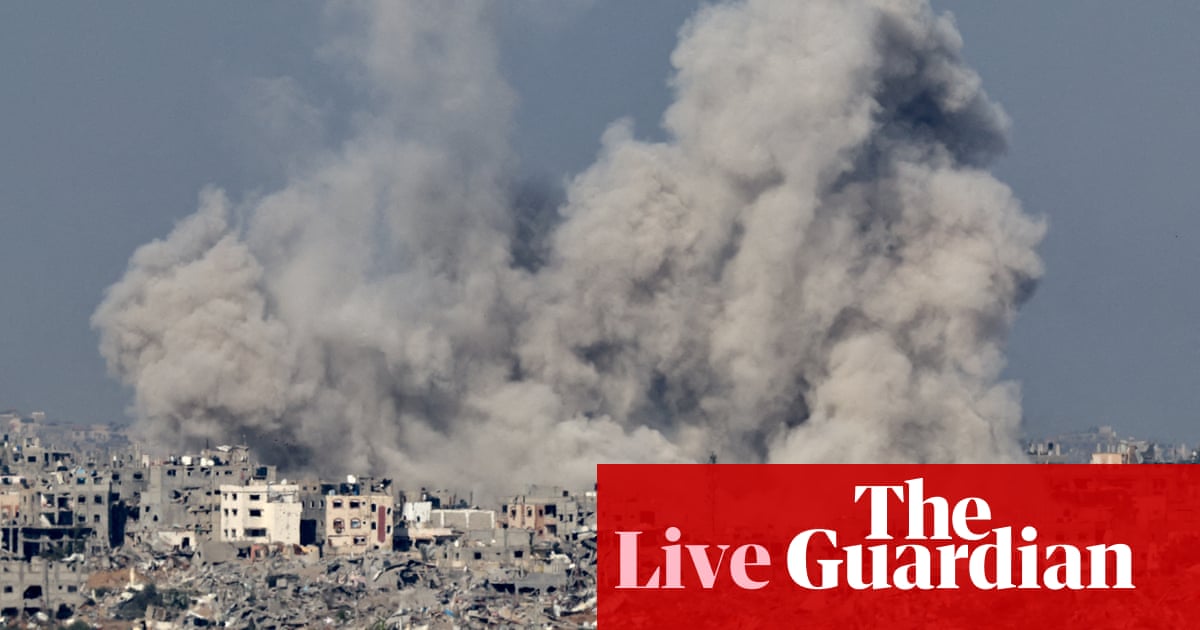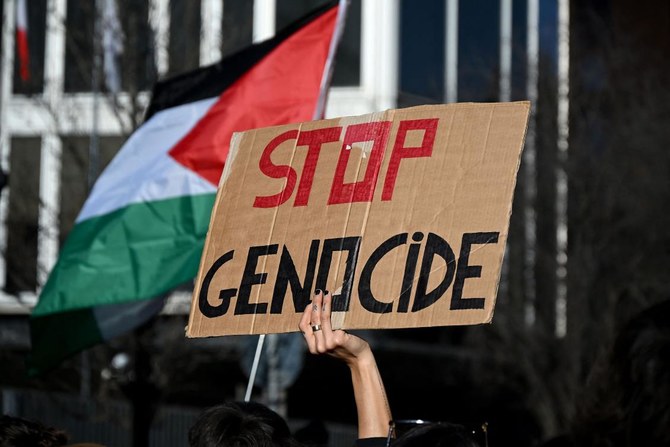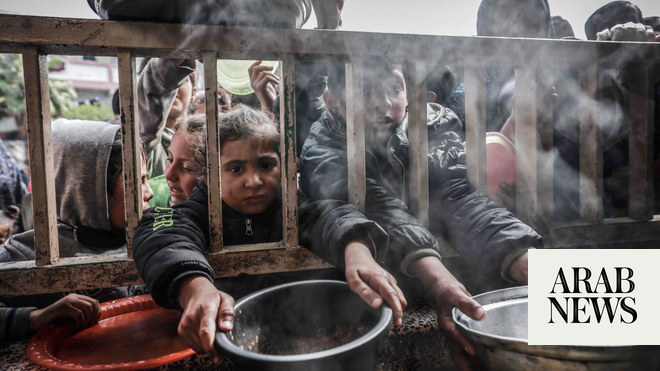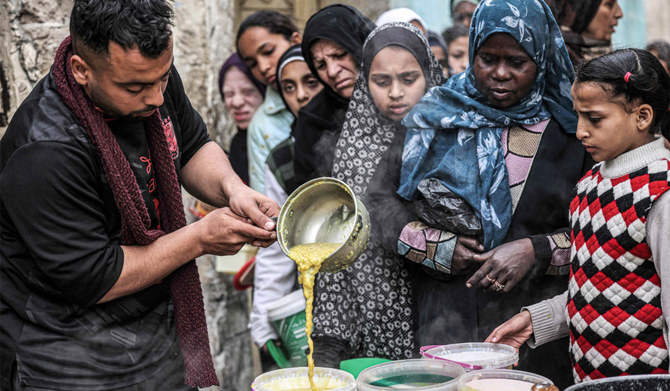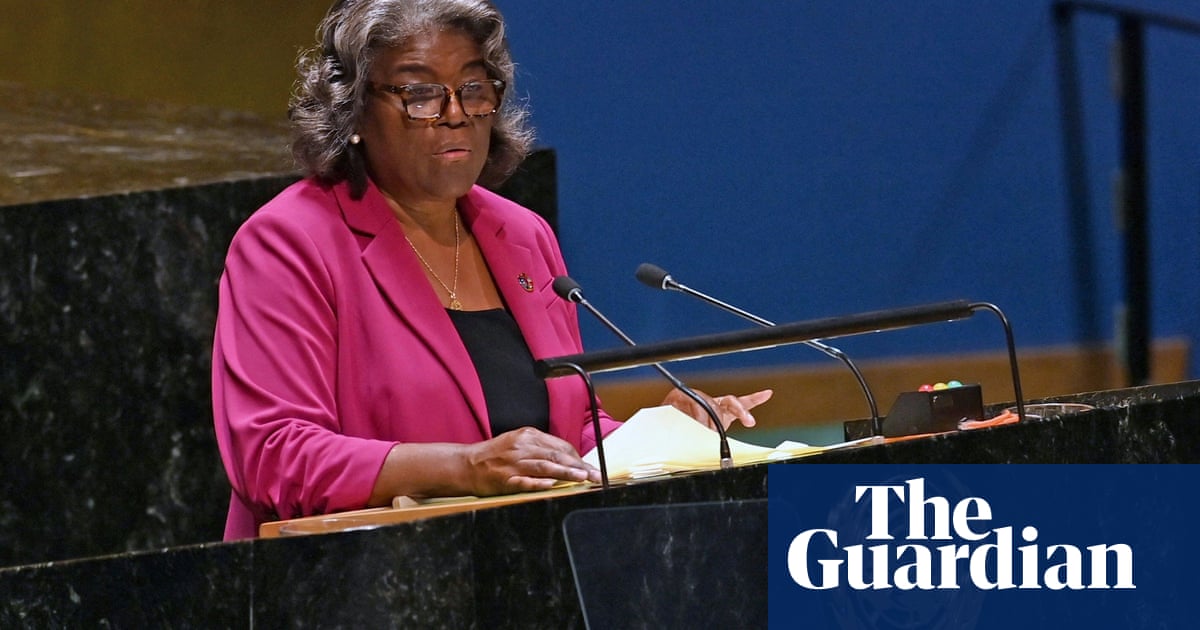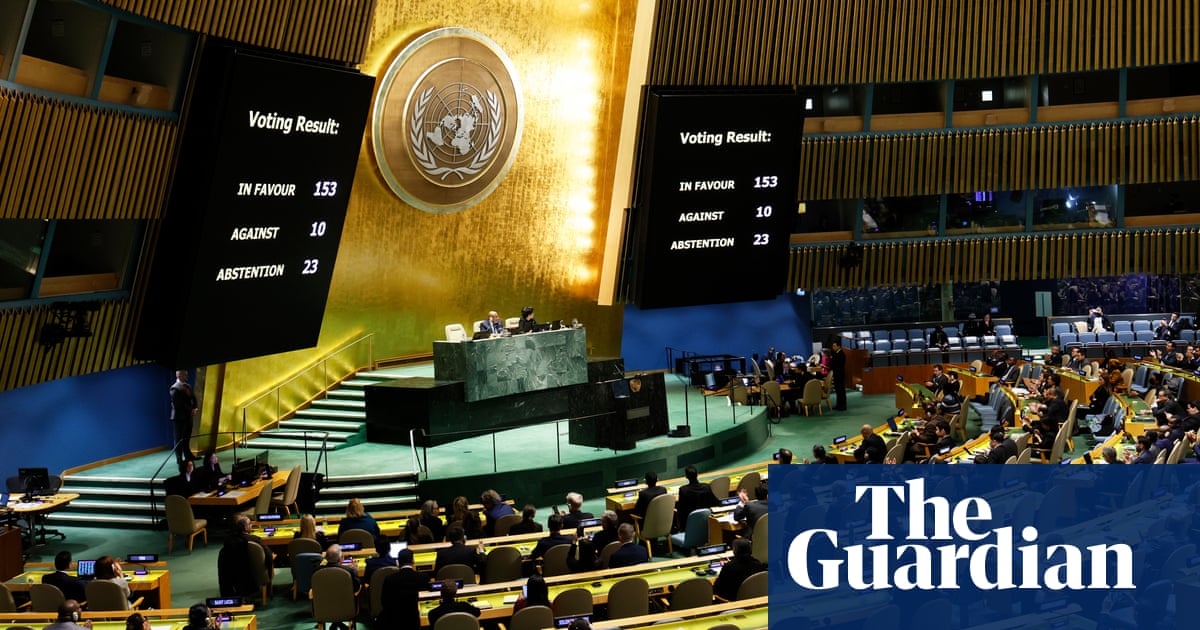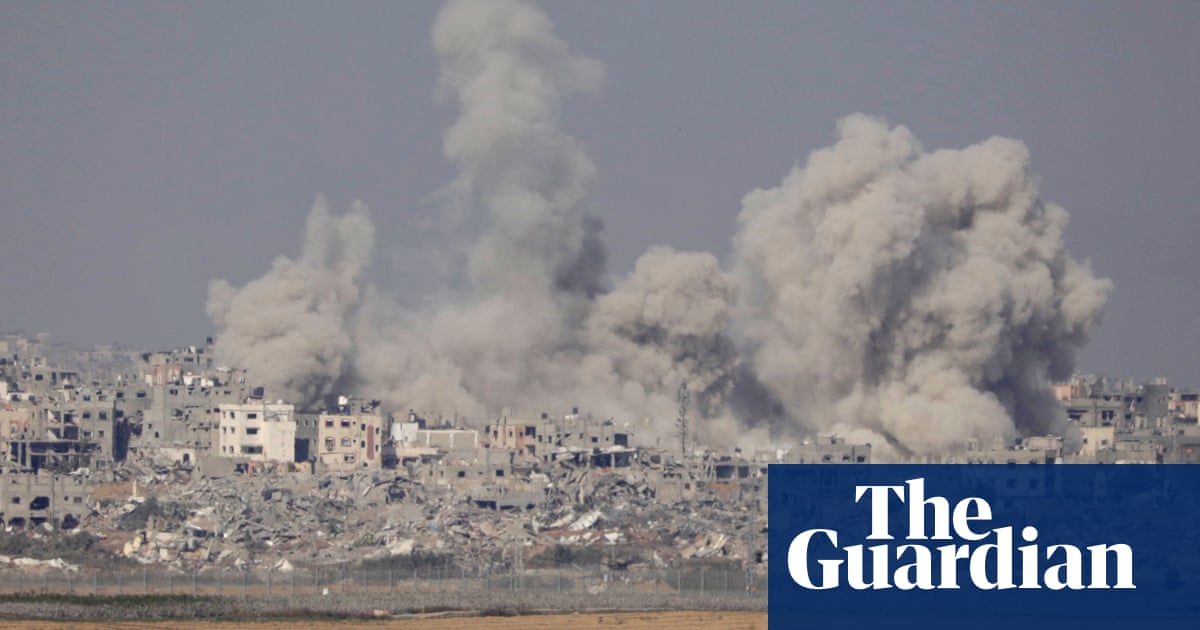
The UN is at “breaking point” in Gaza, its most senior official has warned, as his colleagues described the “untenable” humanitarian catastrophe in the territory, with 700 people sharing a single toilet and people burning plastic to keep warm.
One official said UN agencies were “barely operational” and staff were bringing their children to work “so they know they are safe or can die together”.
Another said Gaza society was “on the brink of full-blown collapse”, with civil order breaking down.
António Guterres, the UN’s secretary general, told a meeting of the security council in New York: “We are at a breaking point. There is a high risk of a total collapse of the humanitarian system.”
People were “desperate, fearful and angry” and were “looking into the abyss”, he said.
Urging the UN to back a security council resolution demanding an immediate ceasefire, Guterres said: “The eyes of the world and the eyes of history are watching.”
Late on Friday afternoon, the US vetoed the resolution calling for a ceasefire. Thirteen countries on the 15-member council supported the motion, with the UK abstaining.
Philippe Lazzarini, commissioner-general of UNRWA (United Nations Relief and Works Agency), the main UN agency in Gaza, said it was “the darkest hour” in the organisation’s history.
In a letter to the president of the UN general assembly, Dennis Francis, Lazzarini said: “UNRWA is, as of today, still operational in Gaza, though just barely. Our staff are still operating health centres, managing shelters and supporting traumatised people, some arriving carrying their dead children.
“We are still distributing food, even though the corridors and courtyards of our premises are too crowded to walk through. Our staff take their children to work, so they know they are safe or can die together.”
More than 130 UNRWA employees had been killed in the past two months of war, and 70% of staff were displaced and lacking food, water and adequate shelter, he said.
“We are hanging on by our fingertips. If UNRWA collapses, humanitarian assistance in Gaza will also collapse.”
In overcrowded and unsanitary shelters, “more than 700 people use a single toilet, women give birth (an average of 25 per day) and people nurse open wounds. Tens of thousands sleep in courtyards and streets. People burn plastic to stay warm.”
He added: “In my 35 years of working in complex emergencies, I have never written such a letter – predicting the killing of my staff and the collapse of the mandate I am expected to fulfil.”
Thomas White, director of UNRWA affairs, tweeted on Friday: “Civil order is breaking down in Gaza – the streets feel wild, particularly after dark – some aid convoys are being looted and UN vehicles stoned. Society is on the brink of full-blown collapse.”
The UN officials’ comments came as Israel intensified its strikes on Gaza, hitting more than 450 targets across the territory from land, sea and air in the 24 hours up to Friday morning. It was the largest number of airstrikes in a 24-hour period since the temporary ceasefire ended a week ago.
Antony Blinken, the US secretary of state, suggested Israel was failing to deliver on promises to protect civilians in Gaza. “There does remain a gap between … the intent to protect civilians and the actual results that we’re seeing on the ground,” he told a press conference in Washington on Thursday.
His statement was an indication of growing dismay and frustration among western diplomats over the scale of civilian deaths in Gaza in the two-month war between Israel and Hamas.
According to the health ministry in Hamas-run Gaza, more than 17,000 Palestinians have been killed since Hamas’s deadly assault on Israel on 7 October, in which 1,200 Israelis were murdered and 240 taken hostage. About 70% of those killed in Gaza have been women and children, the health ministry says.
As many as 1.9 million people – more than 85% of Gaza’s population – had been displaced, many of them multiple times, UNRWA said. More than 1 million people were sheltering in 94 UN facilities in the southern half of the strip.
Tens of thousands of people displaced by fighting have crowded into the town of Rafah, on the border with Egypt, and al-Mawasi, an area of barren coastline between Khan Younis and Rafah that Israel has declared a safe zone. Many people have pitched tents along the side of the road leading from Rafah to al-Mawasi.
Residents and the Israeli military reported intensified fighting in northern areas, where Israel had previously said its troops had largely completed their tasks last month, and in the south where a new assault was launched this week.
The Israeli military’s Arabic-language spokesperson posted to social media that troops were operating “forcefully against Hamas and terrorist organisations in the Gaza Strip, especially in the Khan Younis area and the northern Strip”.
They said all residents must leave the Jabaliya and Zeitoun areas in the north, as well as Shejaiya and the old city in Gaza City. In the south, residents seeking shelter should head along the coast, with the main north-south route through Gaza now “a battlefield”, he said.
The Nasser hospital, the main medical facility in Khan Younis, was overwhelmed with bodies and wounded people.
Meanwhile, the armed wing of Hamas said it had repelled an attempted hostage rescue by Israeli special forces, inflicting several military casualties. A captive also died in the incident, it reported.
In a statement on Telegram, Hamas’s al-Qassam Brigades said its fighters had discovered a special forces unit mounting a rescue attempt and attacked it, killing and wounding several soldiers. It did not specify the location of the incident.
It said a captive Israeli soldier was killed, naming him as Sa’ar Baruch, 25. Lists of the hostages published by Israel have named one as Sahar Baruch, a civilian student who was 24 when he was seized from his home on 7 October.
Asked about the Hamas statement, Eylon Levy, an Israeli government spokesperson, said: “We are not going to comment on psychological warfare that Hamas continues to wage against the people of Israel.”




